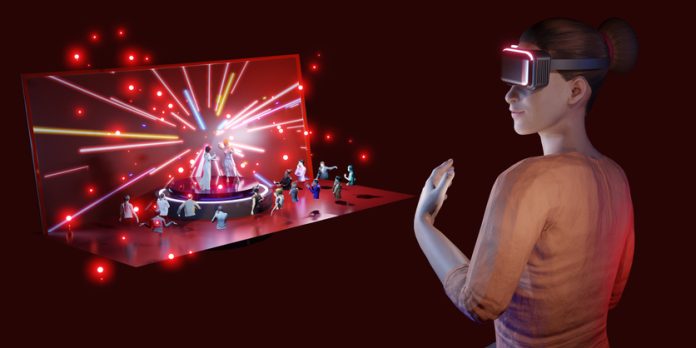
Technology is revolutionizing the live music experience. This article explores innovations in live music, from virtual reality to enhanced sound systems.
Virtual Reality Concerts
Virtual reality (VR) concerts offer immersive experiences, allowing fans to attend shows from the comfort of their homes. Artists like Travis Scott and Marshmello have successfully hosted VR concerts, reaching millions of viewers. Travis Scott’s Fortnite concert, for instance, attracted over 12 million concurrent players, creating a unique blend of gaming and live music that redefined audience engagement.
Similarly, Post Malone’s VR concert, titled “Twelve Carat Toothache: A VR Experience,” premiered on July 15, 2022, and showcased his latest album in a visually dynamic setting within Horizon Worlds. This concert featured special guest appearances from artists like The Kid LAROI and Fleet Foxes, enhancing the collaborative spirit of the event.
Post Malone described the experience as a groundbreaking way to connect with fans, emphasizing the potential of VR to transform how music is experienced in the digital age.
While the VR experience aimed to push the boundaries of live performances, it also included a 2D version accessible on platforms like Facebook and Instagram, which garnered an impressive 14 million views.
Enhanced Sound Systems
Advancements in sound technology, such as 3D audio and high-fidelity sound systems, are enhancing the live music experience. These innovations provide clearer, more dynamic sound for concertgoers. Technologies like L-ISA Immersive Hyperreal Sound by L-Acoustics are creating a more spatial and immersive listening experience, making audiences feel as though they are surrounded by the music.
Interactive Experiences
Interactive elements, such as augmented reality (AR) and interactive light shows, are becoming more common at live events. These technologies create a more engaging and memorable experience for attendees. For example, AR filters and effects that fans can use on their smartphones during concerts add a new layer of interaction, while synchronized light shows and holograms enhance the visual spectacle of performances.
Live Streaming
Live streaming concerts have become increasingly popular, especially during the pandemic. Platforms like Twitch and YouTube allow artists to reach a global audience in real-time. BTS’s live-streamed concert “Bang Bang Con: The Live” drew over 750,000 concurrent viewers from over 100 countries, showcasing the potential of digital concerts to bring fans together globally.
Sustainability
Technology is also contributing to more sustainable concerts. Innovations in energy-efficient lighting and sound equipment, as well as virtual attendance options, reduce the environmental impact of live events. Festivals like Glastonbury are incorporating solar panels and biodiesel generators to power their stages, while virtual concerts eliminate the need for travel and large-scale physical setups, significantly reducing carbon footprints.
Explore the future of live music at Music Industry Weekly.
Technology is transforming the live music experience, making concerts more immersive and accessible.







